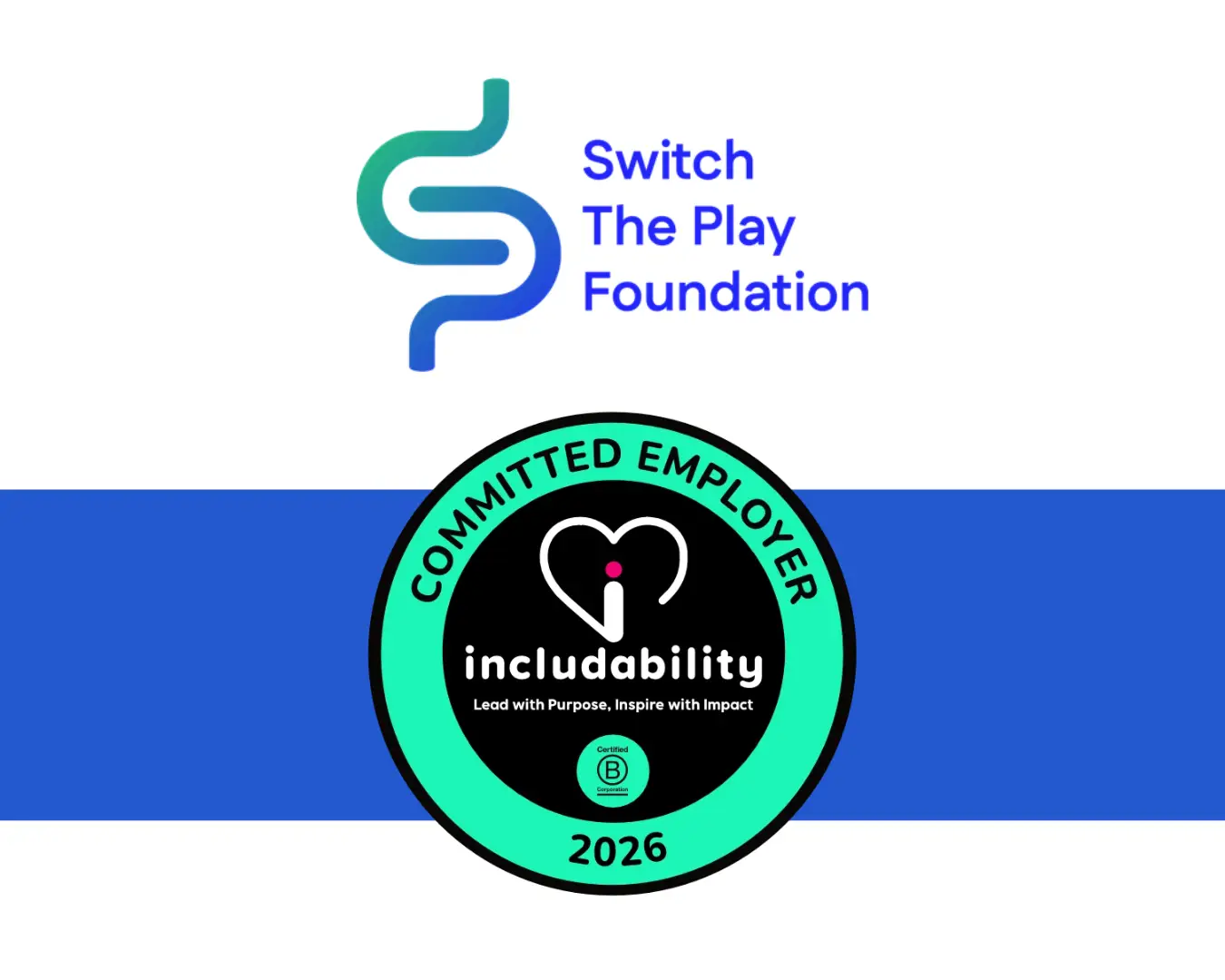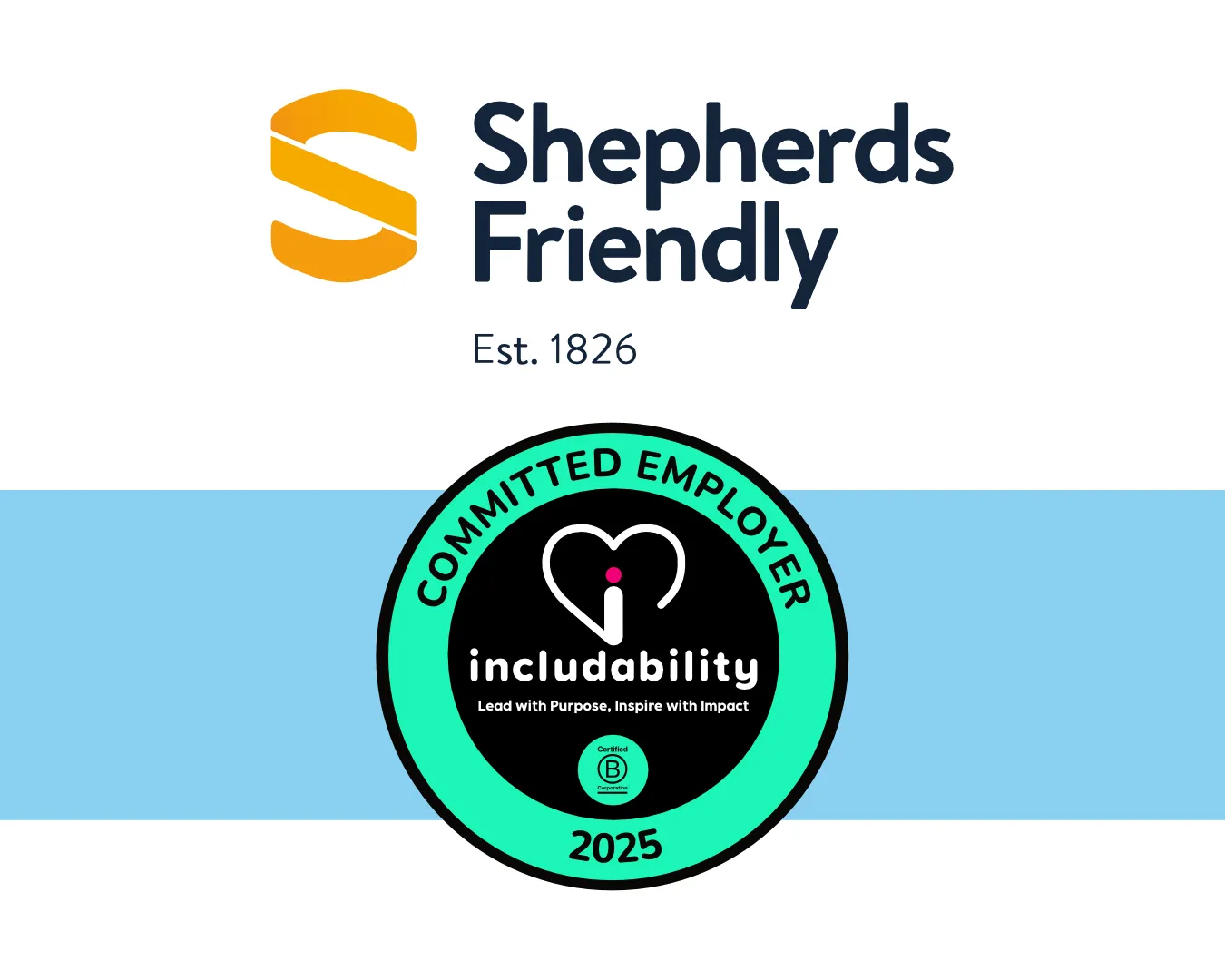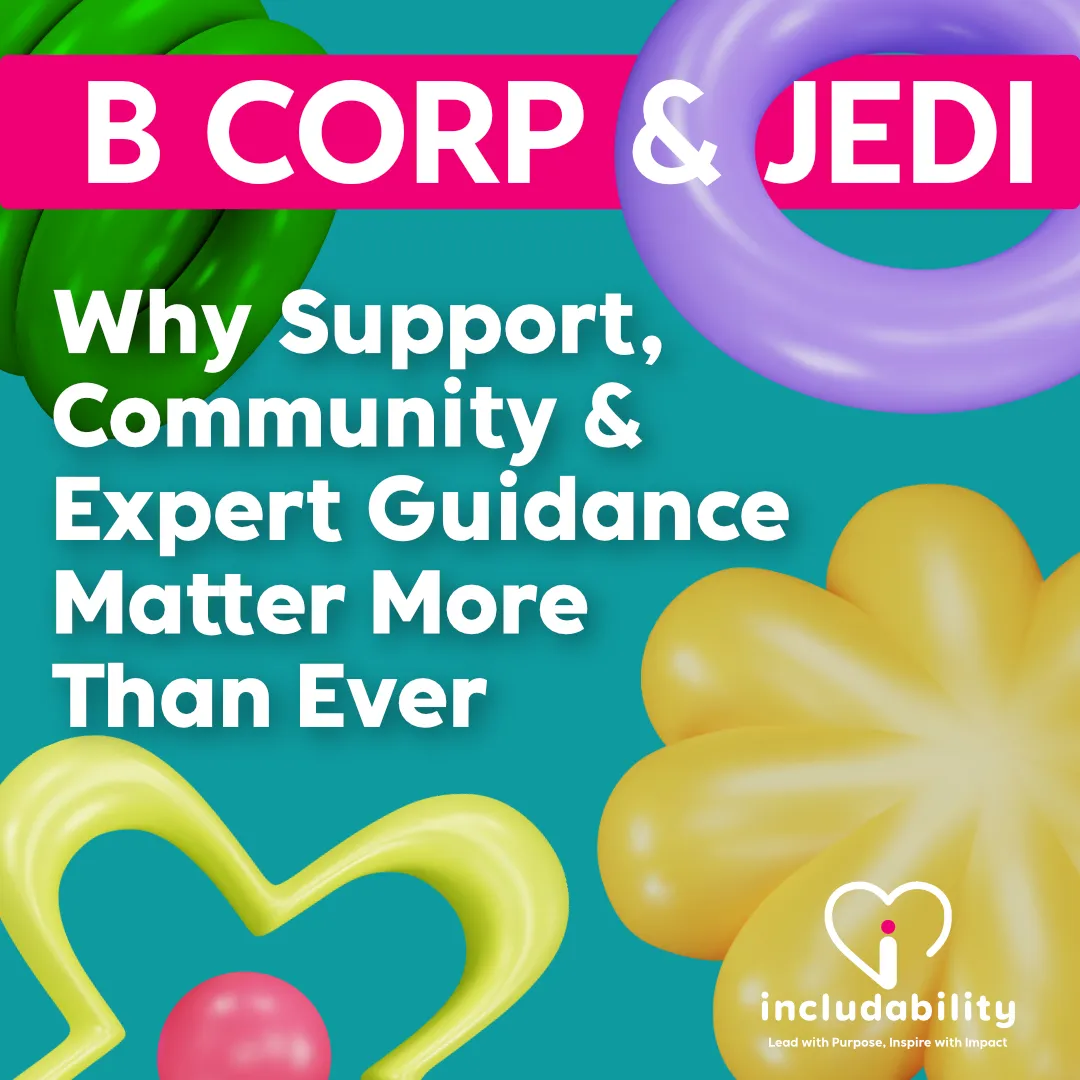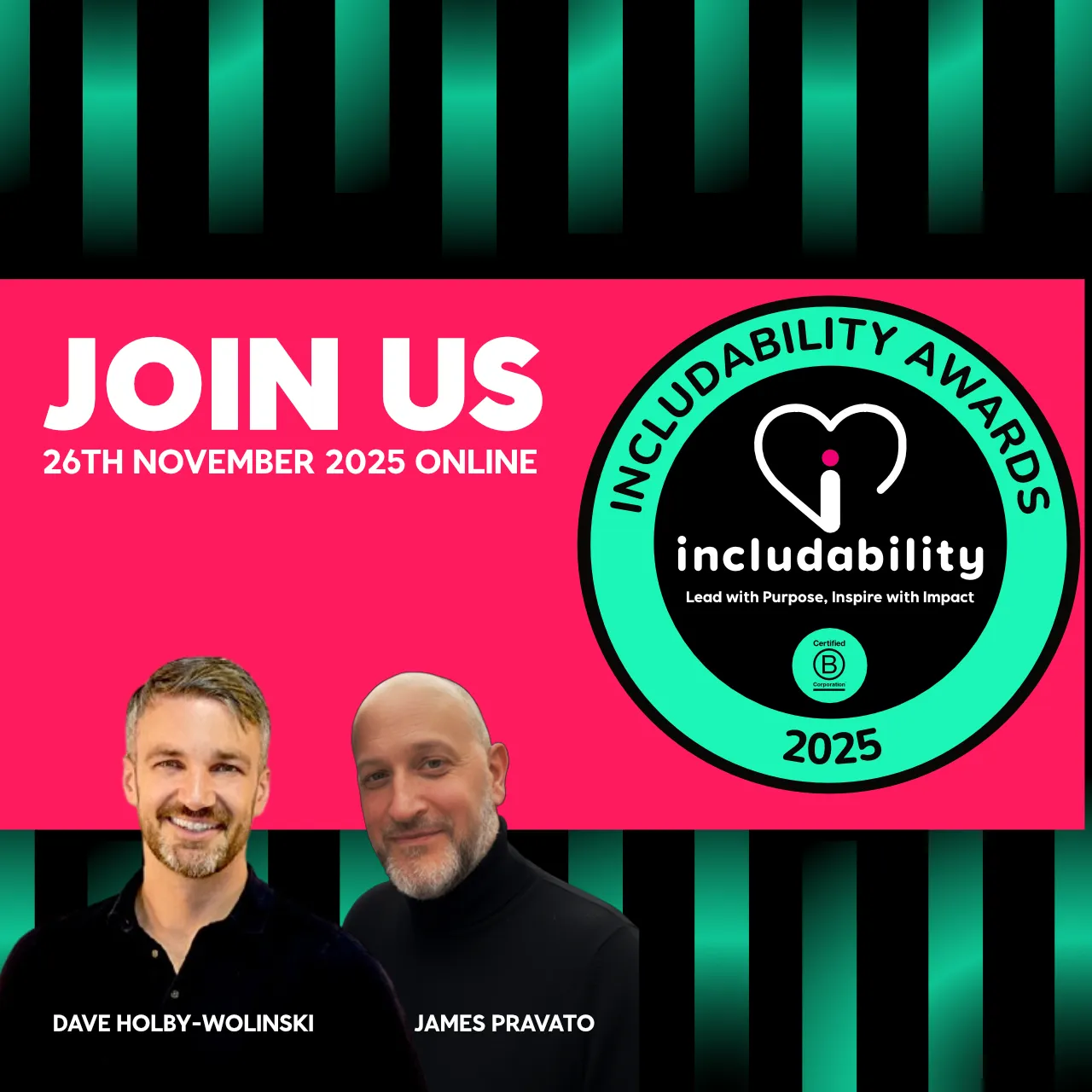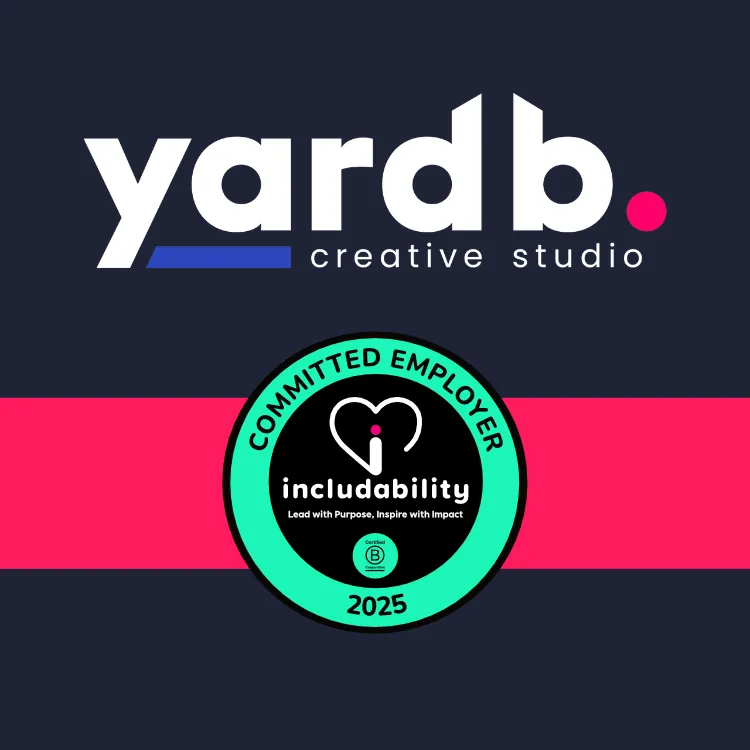LGBT+ Champion and Includability Ambassador Saski - Q&A
Our Q&A with Saski (She/Her) is a multi-talented LGBT+ champion, and Includability Ambassador, who can perform any kind of public engagements from training to presenting, hosting, and singing.

Saski (She/Her) is a multi-talented LGBT+ champion, and Includability Ambassador

We have a Q&A session with the multi-talented LGBT+ champion, and Includability Ambassador Saski
Saski (She/Her) is a multi-talented LGBT+ champion, and Includability Ambassador, who can perform any kind of public engagements from training to presenting, hosting, and singing.
She started out her career as a stage singer, gaining confidence with performing in front of a crowd. She developed her stage presence from there and enjoyed bantering with her audience. She would especially love performing at Pride events. Each year she would be in awe of the presenters at Essex Pride, where she also performed, and ask the organisers if she could be part of the hosting team. Her persistence paid off and she has been the main host of Essex Pride for over five years.
Further to her hosting duties came ‘Saski Chats’, backstage interviews with celebrities and other high-profile attendees of Essex Pride. The fun and boppy nature of the chats made her a hit on online radio but also let her explore other facets of public speaking within, and on behalf of, the LGBT+ community by conducting inclusion training and being a spokesperson for the community.
She conducts most of her inclusion training work on a freelance basis with her Everyday Pride LGBTQ+ Inclusion Programme and has appeared on BBC TV and radio and spoken in the UK parliament on LGBT+ issues, however she also maintains Trans and Gender Diverse Inclusive Education and Awareness Trainer role with Includability Official Partners, Mermaids.
Most of her work involves going into schools and workplaces to provide training and inclusive education around LGBT+ issues. She says she is proud to work with students and young people and says they fill her with energy and excitement knowing she is making a meaningful impact on their lives.
Saski champions the idea of allyship for all manners of equality and inclusion in her training, as it will take most people not directly affected by workplace issues to help usher in the change needed. She says if everyone becomes an ally of true equality, we can start to work and fully tackle discrimination. She says it’s that fully inclusive approach, which is why she decided to become an ambassador with Includability.

Which aspect do you most enjoy when you are freelancing?
Oh, gosh. I feel very fortunate to be able to draw on all those skills and have opportunities where I am constantly kind of chopping and changing in between them because I do get so much out of them.
In terms of my Everyday Pride LGBTQ+ inclusion training programme, I really love the fact that it is helping people, I am making a positive difference and it is making that change by educating people for inclusion and working towards equality, equity and inclusion.
The performance side of it, that is my chance to let my hair down professionally. I started out as a singer, that was going back to my roots.
On the presenting side, I just love talking to people. I could not really say which one I feel more passionate or strongly about because they will all hold a place in my heart. In terms of what is making a real difference, it would be the inclusion training. When I am training people and the penny drops then there is a ‘they've got it’ moment and they understand what I am saying and why this is important. That is the key part to making change.
While freelancing, who has been your most memorable client in your inclusion training?
I always liked working with young people in schools. When I have done equality networks where I have worked for schools with students to set up LGBTQ+ equality groups. I always really enjoy that because that is empowering those young people and often those young people have experienced homophobia, biphobia transphobia and are being bullied in schools. Working with those young people, it just fills you with the energy and excitement about why you are doing it in the first place, and you know you are impacting on their lives. Creating that opportunity for those young people to be able to empower themselves, have that confidence to know that they can be who they are, but also with allies that are about making that change too. Then you are creating that whole school approach to tackle discrimination.
In terms of clients, the young students in the schools are the ones I feel most proud of and lucky to be working with. I like doing the allyship work with clients because there was not that education and awareness in schools for so many years, we do see how it has rippled out and extended itself into the workplace where people are experiencing homophobia, etc and other forms of discrimination. When I am working with clients in the workplace, and I see that penny drop for them and that moment where they finally get it is amazing. This is why we need to do this work and that's why understanding about allyship is really important.
Hewlett Packard Enterprise was a company I did some work with around trans inclusion and allyship and I was really proud of them. I was proud of how forthcoming they were in wanting to make that change. If I were to give an example, I liked what they did to make sure change was embedded in their workplace.
Can you describe your role with Mermaids?
I am an LGBTQ+ inclusion trainer with Mermaids. They are an LGBTQ+ youth charity with a specific focus on trans youth. My role is to provide awareness training around LGBTQ+ youth and their challenges and how to support them. This is delivered to professionals in the workplace and schools on how to create inclusive workspaces.
Any good LGBTQ+ inclusion training should always include allyship, no matter who that is with because that is how we can make that change. Allyship can work within our community as well, it is not just about non-LGBTQ+ identities. Whether it is with Mermaids, or the other training stuff I do, I always make sure allyship is part of it.
What made you get involved with Includability?
I have been asked by a few different people to be an ambassador and have spoken to people within their organisation. I am quite selective because it is important that people do things for the right reasons. With Includability, you are not just specifically focused on one area of inclusion, it is focusing on many areas of inclusion, and that's really important. If we go back to thinking about allyship, it is great to be an ally, but think about being an ally of equality as opposed to just a specific ally. If we are allies of equality, we can start to work and tackle discrimination as a whole.
What I like about Includability is that you are focusing on various aspects of inclusion, equity and diversity. Why wouldn't I want to be a part of that?
How much work is still to be done to achieve, specifically LGBT+, inclusion within workplaces?
It is frustrating because the joke of it for this type of work that we do, is we say, we want to get to the point where we are out of work, because when we are out of work, we do not need to do this anymore because we have reached social justice and inclusion. The reality is we cannot be complacent, even though in this country, we are very lucky. We have the Equality Act 2010; we have equal marriage, and we now have an LGBTQ+ inclusive curriculum within schools. We have a lot of legislation and laws that protect us, but we still have high rates of hate crime (homophobic, biphobic or transphobic hate crime). Whether that is happening outside in wider society, even within the workplace with bullying and incidents, and in schools, there is still a lot of that going on and that will take time to change.
In an ideal world, what that would look like would be making inclusion training compulsory, to have it in every sector, in every workplace. When we start doing that, as opposed to maybe a standalone session or as a celebratory day (although we do celebrate Pride for one month) but making sure that is in place from onboarding and throughout to however long that person has been working there.
Regular, updated inclusion training is where we are really going to start to see the change because the problem is, it is not a compulsory thing. We are now in a time where there is a lot of talk around diversity, equity and inclusion but you will be so surprised how many companies are still not walking the walk, or even talking the talk. They're not that bothered about it, and they think they are okay, or think it is not something that affects them. If we made training compulsory, that is where we would start seeing those changes.
For companies that have Employment Resource groups or Business Resource groups, it is great that they have got them, but for example when I do panel moderating for those types of groups, the fact is it is mostly voluntary work. It is not a paid role where people can really dedicate time to making the changes they need. A person in any ERG group, especially someone running it will be someone who takes time out of their work and put extra hours in on a voluntary basis. You need someone who has a lot of time and commitment to do that, but if we were talking about a paid role, people would be able to really make those impactful changes.
If it was something that organisations took responsibility for and said this is something that they should take very seriously, then you would see a difference.
Do you think further changes to employee cultures would help?
You could have keen employees who want to make a change, but if it does not get the support of senior management, across all levels, it will be a struggle. It must be a top to bottom approach with the people who also make the decisions that can drive those changes. Employee culture must help the change as well. If you want to create an inclusive space for everyone, it cannot just be one voice or minority group, or one underrepresented group doing this. If we were embedding these changes from the start, then you will see the culture change a lot quicker.
Are you happy with the progress made in recent years?
We cannot say we have not made progress because of course we have, and that is important. But sometimes it feels like swimming in mud. If you go on LinkedIn, you can see how many D&I consultants there out there and how many people full-time people we have now in this, making these changes. Yet, you would think and hope that we would be further forward based on that, but people are still chipping away at that block to get there, but we definitely have come a long way.
The LGBTQ+ inclusive education is a massive milestone, however that is going to take time to really see those changes and to be embedded. That came into place in last year when we were in the middle of the pandemic. Whilst it was implemented, it did not get the full launch that it should have had as there was a lot of disruption and other priorities. Things like that in the pandemic do play a part but even without the pandemic, we can say we should still be further forward.
What the pandemic has maybe made people think about is the importance of inclusion in terms of social isolation, especially when many of us have worked from home. Most of us have experienced feeling isolated or separated from people we care about and there has been a massive impact on our mental health.
Hopefully, there will be that realisation of the importance of bringing us together as a team and community. It is really going to be something that we see as a positive change in the future because people now know what it is like to live with that isolation by working from home. It is something that is starting to affect the team and affects that sense of belonging. And Diversity, Equity and Inclusion is also about belonging and togetherness, so, when we get back into that situation where we can come back into group settings, or back into the office, then maybe it will make us think harder on the importance of inclusion at the human level.
As an Includability Ambassador, Saski is available to job seekers wanting to seek advice on LGTB+ issues in the workplace.
She will be hosting this year’s Essex Pride event in August – Tickets available here.

Related resources & events
Sign up for our newsletters
We have an employer and Job seeker newsletter giving you all the latest information in one easy and digestible email. Sign up today for news and job advice straight to your inbox.




